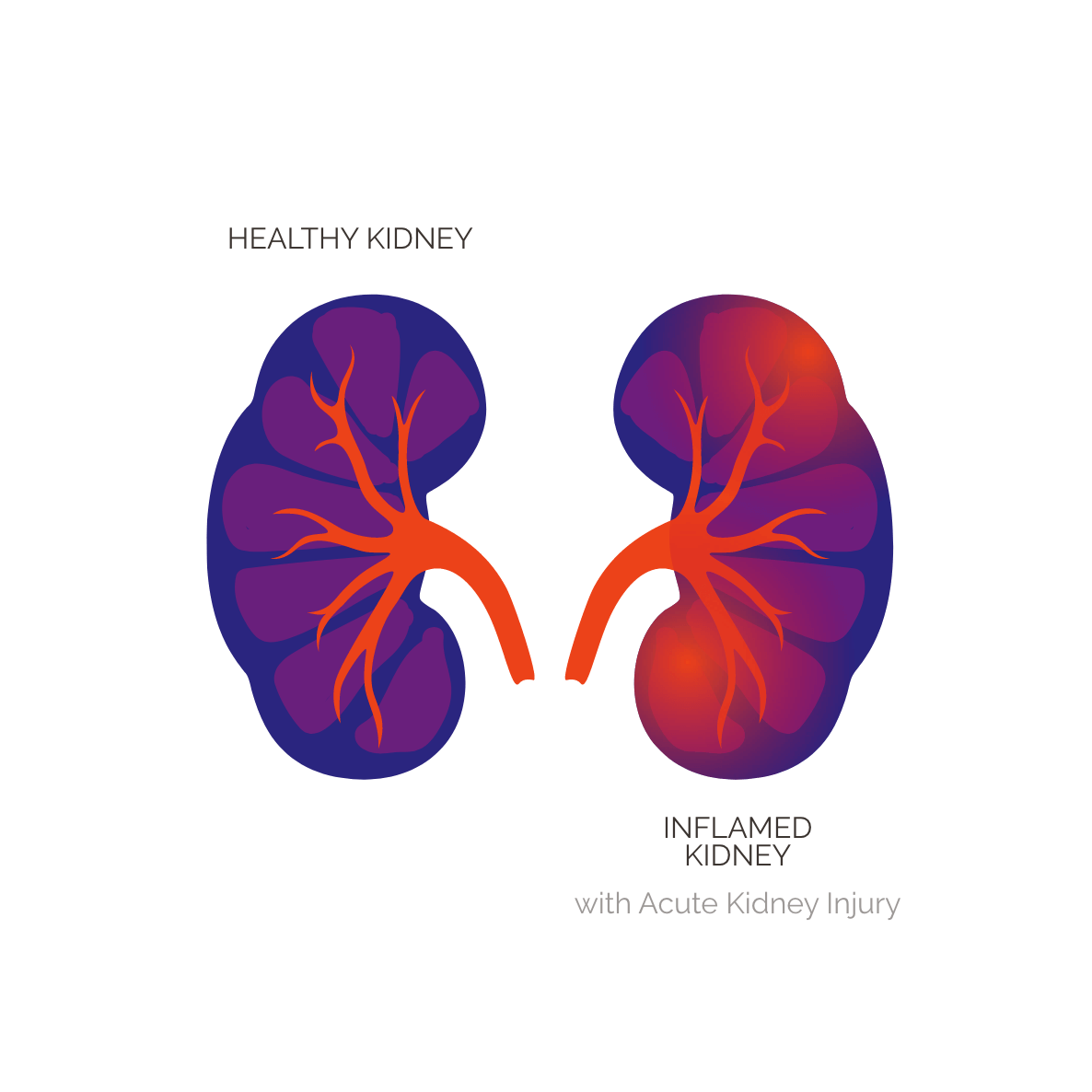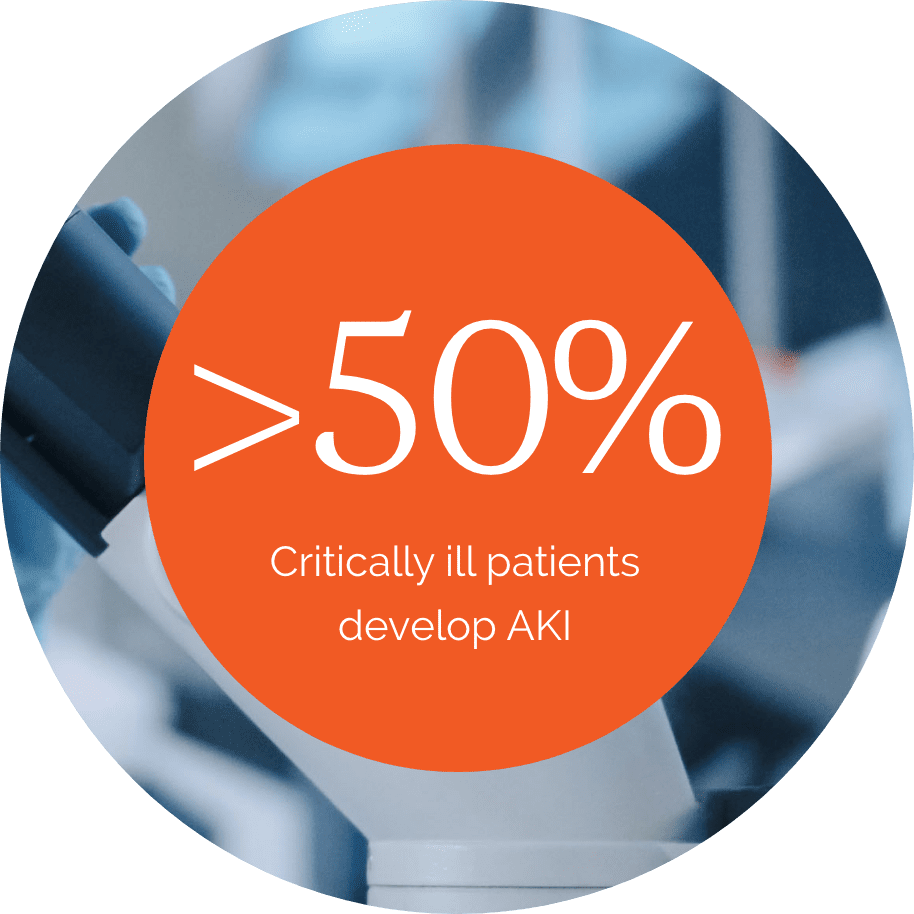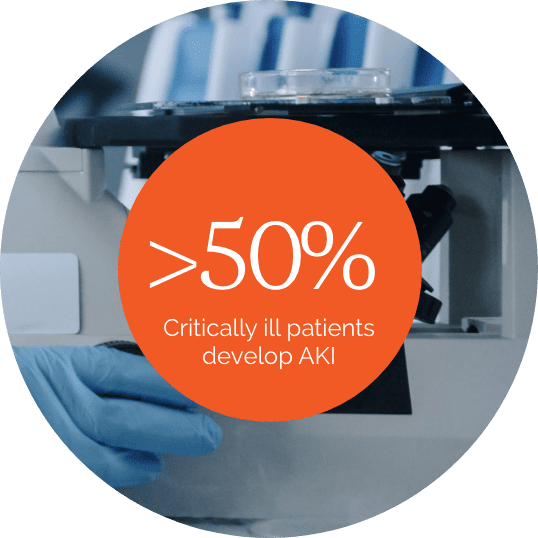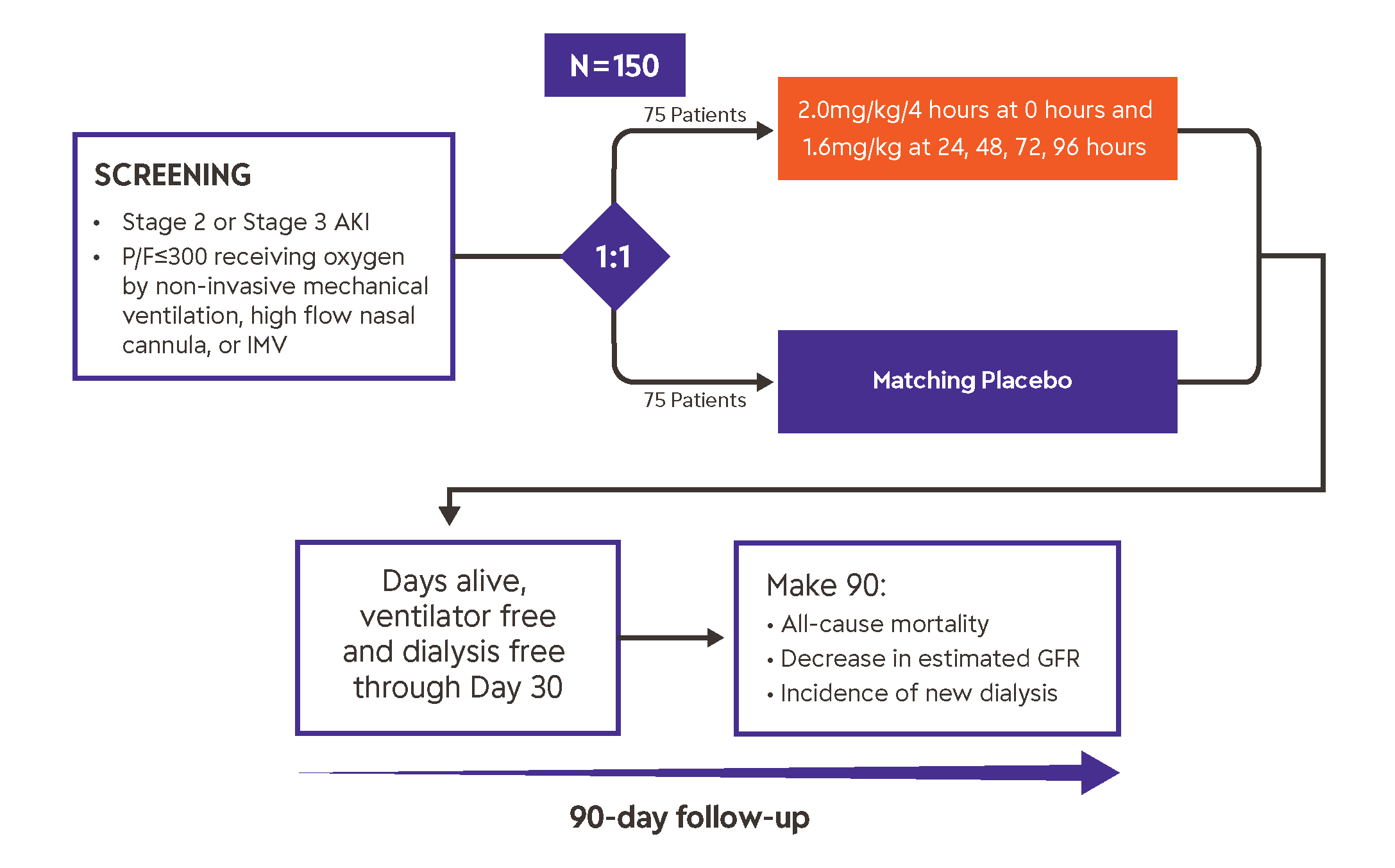
Acute Kidney Injury (AKI)
Auxora™ has the potential to treat severe acute kidney injury, also known as acute renal failure, and limit its associated morbidity and mortality, including progression to chronic kidney disease. The rationale for testing Auxora in AKI is based on both human clinical as well as preclinical data. In the severe and critical COVID-19 pneumonia trial (CARDEA), we saw a nearly 40% reduction in reported AKI in Auxora-treated patients as compared to placebo-treated patients. AKI is a common consequence of severe COVID-19 pneumonia. Further, a post-hoc analysis of CARDEA patients with comprised kidney function at enrollment and treated with Auxora showed reduced mortality compared to placebo-treated patients. Biomarker analysis in CARDEA patients was also supportive.
Preclinical studies that support human clinical trials demonstrated that in an animal model of AKI, treatment with Auxora improved eGFR (estimated glomerular filtration rate, a measure of kidney function) by 61% and decreased infiltration of mononuclear (inflammatory) cells into the kidney by 30%.


Acute Kidney Injury
AKI denotes a sudden reduction in kidney function, or the organ’s ability to clean and filter blood, as measured by increased serum creatinine (a cellular waste product) or decreased urine volume. AKI can result as a complication of other serious illnesses such as sepsis, respiratory infections and failure, acute pancreatitis, trauma, surgery and burns. AKI is marked by three distinct phases; the initial injury, the recovery from that injury and then the long-term damage resulting from the initial injury. Patients who experience AKI are at risk for long-term damage and may develop chronic kidney disease and end-stage renal failure. AKI is classified as stages 1, 2 and 3 depending on the degree of kidney injury. In the presence of AHRF, stage 2 and stage 3 AKI, both classified as severe, put patients at a 50% or greater risk for death while hospitalized and in the 90 days after discharge. There are approximately 1.1 million patients in the United States suffering from stage 2 and 3 AKI over half of whom have associated AHRF. There are currently no approved therapies for AKI.




Auxora™: Solving the Unmet
Need for Patients with Acute
Kidney Injury
patients are hospitalized each year
of these patients have stage 2 or stage 3 (moderate to severe) AKI
- Chronic Kidney Disease
- End-stage Renal Disease
- Dialysis and/or Kidney Transplant
- Death



Auxora™: Solving the
Unmet Need for Patients
with Acute Kidney Injury
KOURAGE is a randomized, double-blind, placebo-controlled study that will evaluate 150 patients with stage 2 and 3 AKI who have acute hypoxemic respiratory failure (AHRF) and are receiving oxygen by non-invasive mechanical ventilation, high flow nasal cannula or intermittent mandatory ventilation (IMV). Patients will be stratified by classification of stage 2 versus stage 3 AKI as well as the use of IMV. Patients will receive either a four-hour infusion of Auxora or placebo at 1.25 mL/kg as a first dose, after which they will receive Auxora or placebo at 1.0 mL/kg at hours 24, 48, 72 and 96. The primary endpoint of the trial will be evaluation of patients through day 30 to determine days alive, ventilator-free and dialysis-free. Secondary endpoints will include a composite of all-cause mortality, decrease in estimated glomerular filtration rate (eGFR), and the incidence of dialysis over a period of 90 days, also known as MAKE-90 (Major Adverse Kidney Events at 90 days).


KOURAGE Phase 2 clinical trial in Acute Kidney Injury
Study Design


For more details on the clinical trial, please click here: A study of Auxora in Patients with Acute Kidney Injury (KOURAGE)

